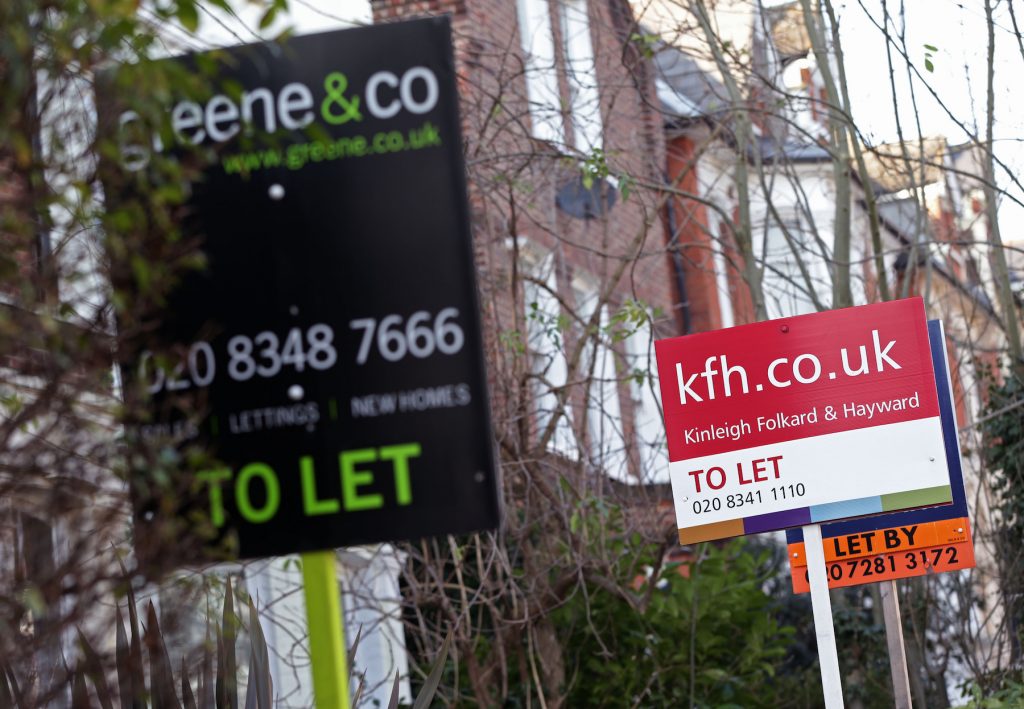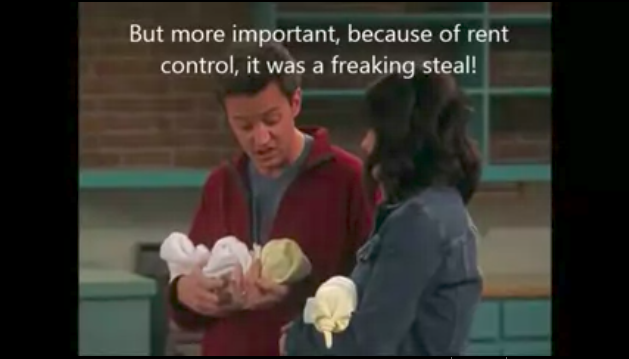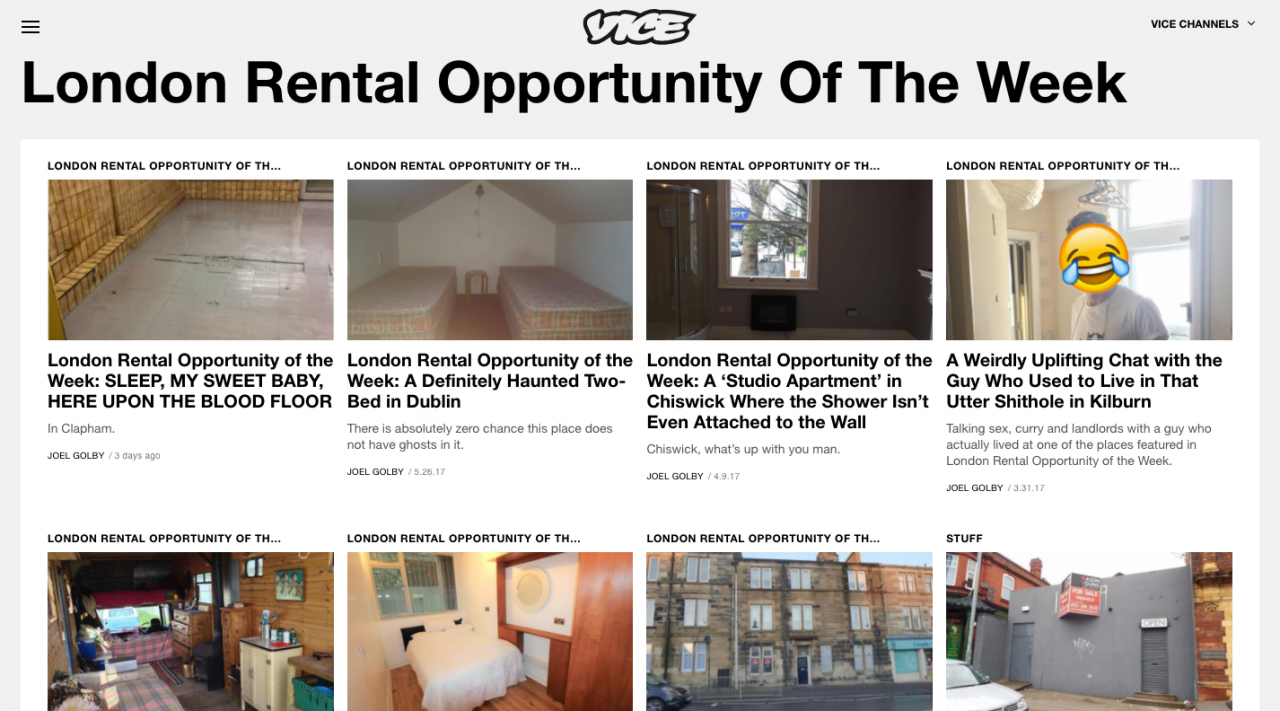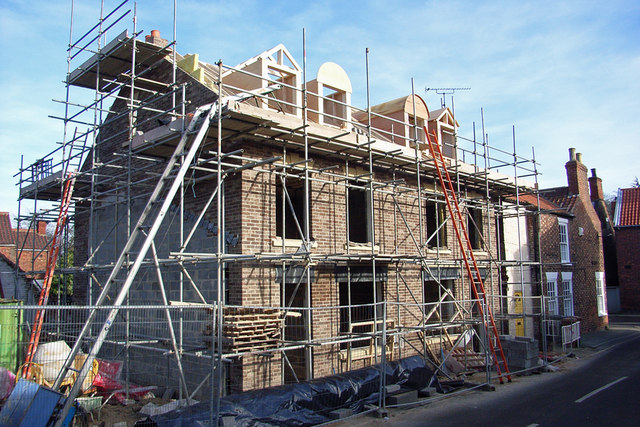
One in seven people in the UK spend more than half their income on rent
Almost one in seven of people who rent privately (from a landlord, rather than a housing authority or the council) pay more than 50 per cent of what they earn each month back out in rent.
In London, that number is a lot higher. The average person spends 60 per cent of their income on rent. That’s well over half your time at work going just on making sure you’ve got a roof over your head.
The government talks a lot about housing. But it's usually talking about how to make it easier for people to buy houses, rather than rent them. That’s slowly started to change, and the government has made some tentative movements to make life a bit better for renters, like making it illegal for landlords to charge fees just for even trying to rent their house.
Some people argue that if you make the rental market better, it will take the pressure of the house buying market – if renting was cheaper, safer and more comfortable then we could all just stay like this forever, rather than desperately trying and failing to save to buy somewhere.
So what's the solution? Just like pretty much everything to do with economics (eye-rolling emojis all round) how to fix the housing market is something people can’t seem to agree on. Here are five ideas that people talk about, and why not everyone's 100 per cent sold on them:
Put a limit on how much landlords can charge in rent

One idea: rent control, i.e. placing some kind of upper limit on the amount landlords are allowed to charge their tenants. It's a pretty divisive issue in the UK. One suggestion is that there would be limits on how much rents could increase in the future, ‘stabilizing’ how quickly they’re rising.
Rent controls are in place in lots of European countries – in Sweden for example, private landlords are not allowed to charge more than 5 per cent more than the cost of ‘social rents’ (housing authority or housing association properties). And it's done okay – renting tends to be more secure and more popular in places that have controls on rents. 60 per cent of people in Germany, and 90 per cent of people in the capital (read: hipsters fleeing London prices) rent their homes.
But some people say that although controls might seem great on the customer side, they're less exciting for the person renting the place. If you make it less profitable for landlords, you might discourage people from renting their properties in the first place – which means less properties available to rent, with just as much competition over them.
Make renting more secure

One of the big problems with renting is that the quality of housing is often pretty low. Although there are minimum standards that landlords have to stick to, there are always some pretty crazy stories about the places people rent for huge prices. Almost everyone's got a horror story: Vice does a good London Rental Opportunity Of The Week (please note the sarcasm) series highlighting the worst offenders.
When there are lots of renters and too few houses, there isn’t really any incentive for landlords to make conditions better for their tenants (or keep the rents affordable) because they know there’s probably someone else desperate for a house who’ll take it anyway.
Shelter, the housing charity, is calling for tenancies to last a minimum of five years, for example. That would give the tenant more stability and security, and limit rent increases in that period so they’re not rising any more than the level – which is how much all prices rise.
Build more affordable houses

We need more houses – that’s something almost everyone’s agreed on. What’s less certain is just what an “affordable” home is. Most definitions put a genuinely affordable rent at 30 per cent of income, but without rent control (see above) even if you build loads of houses, how can you determine what price the house would be rented for once it’s been built?
According to the LGA, only 30,000 genuinely affordable homes were built in the UK last year – the lowest number in 24 years. The government has proposed a ‘Build to Rent’ scheme which would encourage property developers to build new, “high quality” housing for private rents. The idea is that the more houses there are, the less demand there would be for houses, so average rents would go down.
But to make sure there are affordable houses being built, the LGA argues that councils themselves should be given more money for housebuilding. They would build the houses, which would then be available for ‘social housing’ and ‘social rents’, which are cheaper.
Increase the amount of support people have so they can pay higher rents
'Social housing' is when a council, or housing authority owns properties which it then rents to people, without getting any profit, for lower rents. At the moment, there aren't enough social housing properties for the number of people who want them. The government gives housing benefit to help people who don't get a social housing place cover the cost of renting privately, but it's a pretty expensive solution.
The Local Housing Allowance, which is what housing benefit for private tenants is called, is frozen at the moment (which means it won’t rise any more, even as renting gets more expensive). Bringing the housing benefit bill down is one reason people are so keen to sort the whole rental market out – it currently stands at around £25 billion.
But, Shelter argues, even if the government builds loads of new houses and fixes the whole rental problem, it will take a long time for rents to fall on their own and for everyone in society to feel the benefits. In the meantime, Shelter says, the freeze should be lifted, which will stop the gap between the support people are given and the amount they have to pay in rent from rising.
Just pay people more money
The cost of renting in England has risen an average of 14.6 per cent from May 2011 to May 2017. Wages have only risen by 10 per cent.
One way of making sure renting isn’t totally unaffordable is by making sure people have enough money to pay the going rents. In the UK at the moment economists and politicians keep talking about a “squeeze” on wages – basically they aren’t increasing as much as the cost of living is increasing. By making sure there are enough good paying jobs for people to do, the gap between what people earn and what they pay out in rent becomes smaller. Simples.



